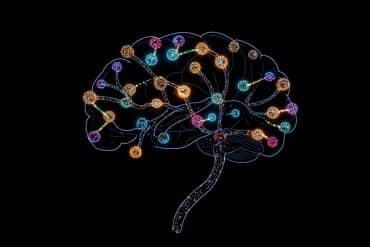Summary: 3,6’-dithiopomalidomide (DP), an anti-inflammatory drug candidate, protected mouse models of Alzheimer’s disease against cognitive decline by reducing neuroinflammation.
Source: NIH
An anti-inflammatory drug candidate, known as 3,6’-dithiopomalidomide (DP), designed by researchers at the National Institute on Aging (NIA), protected lab mice against cognitive decline by reducing brain inflammation.
An international research team led by the NIA scientists published their findings in Alzheimer’s and Dementia: The Journal of the Alzheimer’s Association. NIA is part of the National Institutes of Health.
The study results provide new evidence that brain inflammation — which occurs decades before Alzheimer’s symptoms are noticeable — is a key neuropathological pathway of interest in efforts to find potential treatments for Alzheimer’s.

To investigate whether brain inflammation was directly involved in cognitive loss, researchers used a mouse model specially designed to produce up to five times the normal levels of beta-amyloid plaques. These plaques are a hallmark sign of Alzheimer’s and are thought to contribute to a destructive inflammatory response in the brain.
After four months of treatment with DP, the mice showed reduced brain inflammation and neuron death, and they had more neural connections in the brain areas responsible for memory and attention.
DP-treated mice also showed improvement in behavioral laboratory tasks that test spatial and working memory as well as anxiety behaviors and motor function, results the researchers see as protective against cognitive impairment.
About this neuropharmacology research news
Author: Press Office
Source: NIH
Contact: Press Office – NIH
Image: The image is in the public domain
Original Research: Open access.
“Role of chronic neuroinflammation in neuroplasticity and cognitive function: A hypothesis” by Lecca D, et al. Alzheimer’s & Dementia
Abstract
Role of chronic neuroinflammation in neuroplasticity and cognitive function: A hypothesis
Objective
Evaluating the efficacy of 3,6’-dithioPomalidomide in 5xFAD Alzheimer’s disease (AD) mice to test the hypothesis that neuroinflammation is directly involved in the development of synaptic/neuronal loss and cognitive decline.
Background
Amyloid-β (Aβ) or tau-focused clinical trials have proved unsuccessful in mitigating AD-associated cognitive impairment. Identification of new drug targets is needed. Neuroinflammation is a therapeutic target in neurodegenerative disorders, and TNF-α a pivotal neuroinflammatory driver.
New hypothesis
AD-associated chronic neuroinflammation directly drives progressive synaptic/neuronal loss and cognitive decline. Pharmacologically mitigating microglial/astrocyte activation without altering Aβ generation will define the role of neuroinflammation in AD progression.
Major challenges
Difficulty of TNF-α-lowering compounds reaching brain, and identification of a therapeutic-time window to preserve the beneficial role of neuroinflammatory processes.
Linkage to other major theories
Microglia/astroglia are heavily implicated in maintenance of synaptic plasticity/function in healthy brain and are disrupted by Aβ. Mitigation of chronic gliosis can restore synaptic homeostasis/cognitive function.







